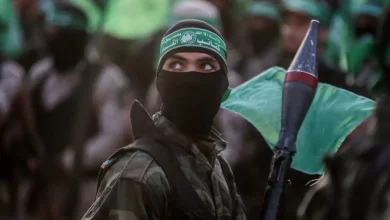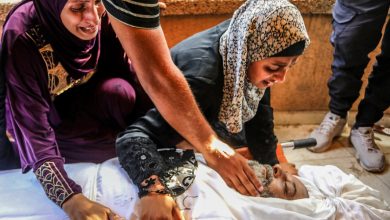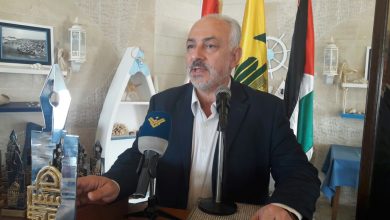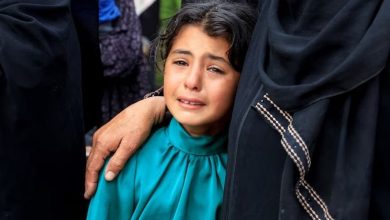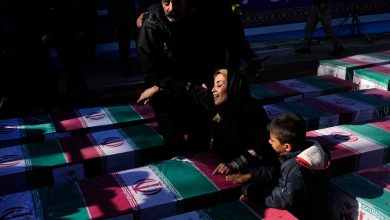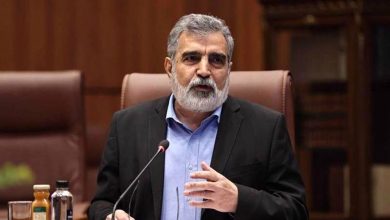“We’ll be back”: Resilient Lebanese residents return home in the south amid zionist forces’ refusal to withdraw
The 60-day deadline for the Israeli military's withdrawal from southern Lebanon reached its conclusion on Sunday, prompting a large influx of individuals returning to their villages. Despite warnings from Israeli authorities, thousands made their way home, traveling by both vehicle and on foot.
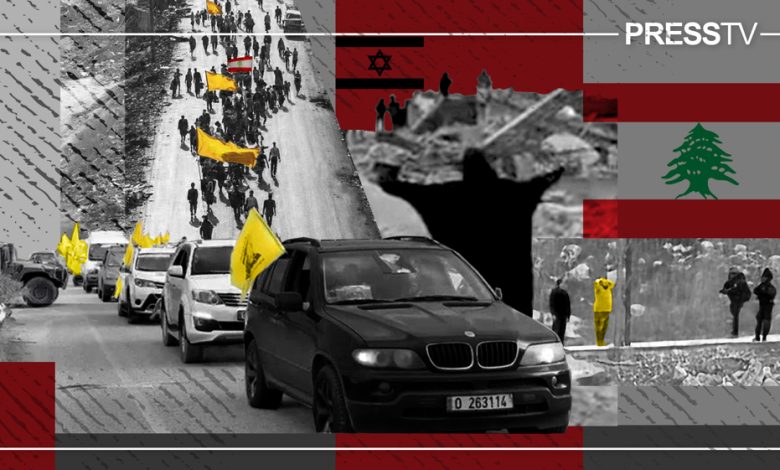
The Israeli government did not comply with the conditions of the ceasefire agreement, ignoring the deadline for its withdrawal from Lebanese territory, which lapsed on Sunday at 4 a.m. local time (GMT 02:00).
The Israeli military has issued a cautionary statement advising residents against returning to their homes in the southern region of the country. This warning comes despite a previous obligation for military forces to withdraw and permit civilian reentry.
In a remarkable display of courage and resilience, residents of Kfar Kila, Khiam, and surrounding regions in southern Lebanon made their way back to the remnants of their homes on Sunday, undeterred by warnings and threats.
In response, the occupying forces reportedly unleashed indiscriminate gunfire, resulting in the deaths of at least 15 individuals and injuring over 80 others, according to recent reports. The number of casualties is anticipated to rise.
In an interview with Press TV’s website, Lebanese Member of Parliament Sayyed Ibrahim al-Moussawi stated that the return of residents to their towns and villages on Sunday, in the face of adversarial threats, serves as a strong testament to their deep-rooted connection to their homeland and their unwavering determination to remain.
He stated that the Lebanese population has resolutely decided to remain on their land, despite Israeli forces not adhering to the withdrawal deadline set forth in the 60-day ceasefire agreement.
The indomitable spirit, as emphasized by al-Moussawi, was evident early Sunday morning, as thousands of individuals, both men and women, boldly disregarded threats to return home.
Numerous individuals gathered their belongings and embarked on a journey back to the southern villages, utilizing their vehicles for the initial stretch. In spite of the ongoing Israeli military presence within Lebanese territory, a significant number of people attempted to traverse the remaining distance to their homes on foot.
Footage and images acquired by the Press TV website have documented these acts of defiance.
In a recent video, a group of young men was seen gathered within two meters of an Israeli tank in Maroun al-Ras. The individuals passionately chanted songs of resistance and displayed images of the martyred Hezbollah leader Sayyed Hassan Nasrallah. Amidst the fervent atmosphere, they could be heard shouting, “Labayka Nasrallah,” pledging their allegiance and service to Nasrallah.
A photograph has surfaced depicting Israeli soldiers detaining two Lebanese individuals from the town of Houla, marking a bold breach of the ceasefire agreement. According to eyewitness testimonies shared with the Press TV website, Israeli forces reportedly opened fire on civilians in the areas of Kafar Kila and Odeissi, resulting in injuries to several individuals.
A defiant message asserts resilience with the statement, “Regardless of the destruction, our presence endures.”
At the entrance to the village of Aitaroun, Israeli Merkava tanks obstructed roadways and opened fire on unarmed Lebanese civilians as they attempted to make their way home, leading to casualties and injuries.
Hassan informed the Press TV website that access to the village has been prevented following the killing of his cousin, Abed, by Israeli forces. Abed was a lifelong resident of Aitaroun.
Despite the severity of these actions, residents remained steadfast, pledging to go back to their villages.
Hassan declared a firm commitment to returning, emphasizing that “there is no alternative.” He criticized the Israeli stance, asserting, “They fail to comprehend that our presence is unwavering. Our support for the resistance and our homeland is steadfast until the very end. We will continue to inhabit our land, even if it means living amidst the ruins.”
Faced with impassable conditions for vehicles, hundreds of individuals proceeded to complete their journey by foot.
A woman speaking to the Press TV website reported that they are now traveling on foot along roads that have been destroyed by Israeli forces. She expressed determination, stating that regardless of the troops’ current presence, they are expected to withdraw soon, emphasizing, “This land is our land.”
Ahmad, accompanied by his sister and using crutches, made his way to Mais al-Jabal, citing his decision to attend despite his health issues as a testament to his support for the resistance movement.
Speaking to the Press TV website, he recounted the ordeal of attending despite significant personal challenges: “Today, I stand here with a broken leg, an injury sustained from an earlier Israeli assault on Beirut amid the conflict. I’ve endured two surgeries, yet I insisted on being present, despite the considerable difficulty of navigating war-torn streets with crutches.”
Resistance: A Unwavering Choice Among the Public
MP al-Moussawi affirmed that despite facing threats and dangers associated with the Israeli military occupation, the Lebanese population maintains a steadfast commitment to resistance and their cause.
“We have observed the abduction and injury of numerous Lebanese citizens, with a number of individuals having paid the ultimate price,” he stated to the Press TV website. “Nonetheless, the Lebanese populace remains resolute in their choice to resist under any circumstances.”
According to local reports, recent activities attributed to Israeli forces have led to the evacuation of various towns. Significant destruction has been reported, with large areas being set ablaze and numerous homes and institutions demolished. These actions have reportedly instilled a sense of despair and hopelessness among residents, compelling many to abandon their communities.
A Lebanese lawmaker emphasized that the return of southern residents to their homes and orchards symbolizes their enduring connection to the land and their spirit of resilience.
He stated, “This is the inherent right of the populace, encompassing all individuals who uphold the ideals of independence and freedom for this nation and honor the sacrifices made by the martyrs.”
Supporting this cause is a matter of national duty, emphasized by advocates.
Al-Moussawi issued a strong rebuke to the international community, including the ceasefire monitoring committee, the United Nations Security Council, and the United Nations Interim Force in Lebanon (UNIFIL), for what he described as their persistent inaction.
He emphasized the gravity of the ongoing Israeli actions, suggesting that these incidents indicate a disregard for commitments and a diminishment of international laws and resolutions by Israel. He further implied that Israel operates under the belief that it will not face consequences on the global stage.
He criticized Israel’s justifications, asserting, “The 60-day ceasefire provided ample time to thoroughly inspect the area and confirm it was free of weapons, as they had purported.”
**Title: Justification for Acts of Resistance**
Layla, positioned at the entrance of Aitaroun, conveyed a mix of frustration and resolve.
Speaking to the Press TV website, she asserted that Hezbollah’s defense of Lebanon had previously deterred Israeli incursions. She expressed determination to expel them once more.
“Amid heightened tensions, questions have emerged regarding the unfulfilled international assurances for Israeli withdrawal. Concerns have been raised about the current silence from global actors, prompting inquiries about the stance and response of the Lebanese government in this ongoing issue.”
In the early hours, Layla and her family made their return, fully aware that their home had been obliterated amid the recent conflict that has sparked a widespread humanitarian crisis in the Arab nation.
In alignment with sentiments expressed by numerous southern residents, Layla reiterated the stance of a Lebanese MP, emphasizing the urgent need for the nation’s presidency, government, and military to play a crucial role in safeguarding civilians and reclaiming territorial integrity.
“The current situation poses significant risks,” stated al-Moussawi. “Hezbollah remains open to the possibilities presented by parties offering assurances to halt Israeli aggression and ensure withdrawal. The ongoing developments highlight Lebanon’s continued need for resistance.”
The resistance has demonstrated that its presence on the ground acts as a significant deterrent, compelling Israeli forces to carefully consider their actions. In the current climate, it appears that international agreements and commitments are insufficient in curbing further violations by Israeli forces.
A Lebanese lawmaker emphasized that citizens of Lebanon are entitled to undertake measures to liberate and protect their territory, consistent with international legislation, human rights treaties, humanitarian laws, and the Taif Accord, as reported by the Press TV website.
Today’s events highlight the necessity for the Lebanese people to take proactive measures in self-defense, as the state has shown an inability to perform its duties effectively. This lack of governmental capacity has created a void, compelling citizens to form resistance efforts against Israeli forces.
In a recent development, US special envoy Amos Hochstein informed Lebanese officials that Israeli forces are set to withdraw from southern Lebanon prior to the conclusion of the current 60-day ceasefire. This announcement comes as part of ongoing diplomatic efforts in the region.
According to the terms of the agreement finalized in November, Israeli military forces are obligated to withdraw from Lebanon by January 26, a 60-day timeline. In exchange, Hezbollah is required to evacuate the area surrounding the Litani River, approximately 30 kilometers (18 miles) from the border, and to dismantle any remaining military infrastructure in southern Lebanon.
During this time frame, occupation forces have been carrying out almost daily attacks on Lebanon, breaching the ceasefire agreement, with aerial strikes targeting various locations across the nation.
Earlier this month, former Lebanese Prime Minister Najib Mikati announced that Beirut has delivered a firm statement to international monitors overseeing the ceasefire agreement with Israel. He emphasized that the Israeli government must fully withdraw its forces from southern Lebanon by the end of January.
During a meeting with Hochstein in Beirut on January 6, he cautioned that ongoing breaches of the ceasefire agreement jeopardize the entire accord, a scenario he believes no party desires.
On January 10, Lebanon lodged a formal complaint with the UN Security Council, condemning what it described as acts of aggression by Israel against agricultural lands and livestock in the southern region. Beirut asserts that these actions violate the existing truce agreement between the two nations.
Following a successful vote from Lebanese legislators, Nawaf Salam, a judge from the International Court of Justice, has been appointed as the new Prime Minister of Lebanon.
In his inaugural address as Prime Minister, Salam pledged to prioritize efforts to achieve the full withdrawal of Israeli forces from all remaining occupied territories.
In a meeting with United Nations Secretary-General Antonio Guterres on Saturday, newly elected President Joseph Aoun stated that Israel continues to breach the established ceasefire agreement.
In a statement issued on Sunday following recent assaults on Lebanese citizens returning to their southern residences, Aoun declared that Lebanon’s sovereignty and territorial integrity are “non-negotiable.”
Residents in Lebanon assert that the recently formed government in Beirut has not yet effectively compelled the Israeli administration to uphold the conditions of the ceasefire agreement.

